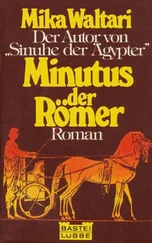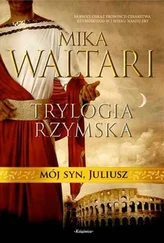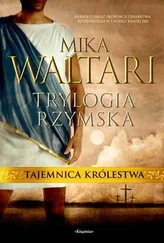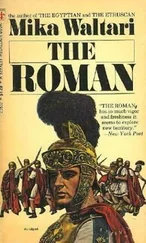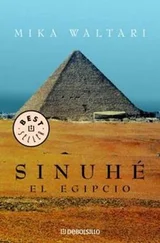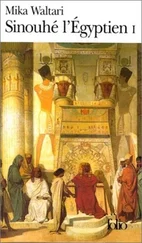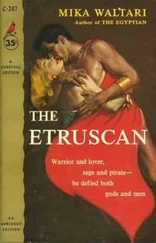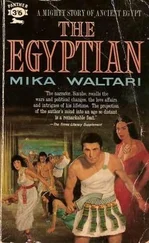Prince Mustafa cried excitedly, “This should be good sport! Let’s follow him and see what happens. My father the Sultan entrusted this man to my care, but if I can’t save his life I should at least like to watch him die. Although I’m the Sultan’s eldest son I have not seen many men die. Come, Muhammed!”
The smile faded from Sultana Khurrem’s lips and her eyes turned ice blue, as if the shadow of death had glided through the room. Perhaps danger had quickened my wits, for I understood at once that Mustafa, on ascending the throne after his father’s death, would have his brothers slain. It would be but in accordance with the law, for the gravest menace to the Ottoman Empire had ever been that of civil war between brothers. I had strayed into the gardens of death; what hope remained?
I believe only Prince Mustafa’s arrogant manner saved me, for, since it stung Khurrem to hear him boast of his age compared with that of his half-brother, she made it a point of honor to protect me. She said, therefore, “Mustafa and Muhammed, go at once and find the Kislar- Aga. Tell him to come here instantly on pain of my most severe displeasure.”
The princes were thus compelled to renounce the exciting game in which I was to be the bait. They tossed their heads and muttered, but at length obeyed. As soon as they had gone Khurrem turned to me and asked quickly, “Who are you and what is your profession? I hope I do not compromise myself by shielding an unworthy man.”
Rapidly I told her of my travels and of how I took the turban, of how Khaireddin of Algiers had sent me to be the Sultan’s slave because of my languages and my familiarity with conditions in Christendom. At this point the Kislar-Aga arrived in a state of unspeakable agitation, and pressing his forehead to the floor in repeated prostrations he said, “Sovereign lady! Most high Sultana! I cannot tell how the error occurred, but mutes await this impudent slave at the copper gates. The matter shall remain a secret and your fair fame unsullied. Not even the Lord of all Nations need hear what has occurred.”
The flabby, ashen-faced eunuch stood there in his resplendent official dress and his eyes as he glared at me were dark with fury. But Sultana Khurrem said, “This slave was commanded by the Sultan himself to tend Prince Jehangir’s monkey. See that he is given the drugs he requires and that he returns safely to my pavilion, unless you should receive contrary orders from the Sultan.”
The Kislar-Aga was compelled to obey. He escorted me from the pavilion, and two strong eunuchs seized me and hustled me out of the gardens even more speedily than I had entered them. The Kislar- Aga, pouring forth an unbroken stream of abuse, never let me out of his sight for an instant until we reached the apothecary’s shop in the forecourt. Here the Sultan’s Jewish physician Solomon quickly mixed the medicine I asked for, though he seemed jealous because I was accompanied by the Kislar-Aga and asked spitefully at which learned university I had taken my medical degree. The Sultan’s physicians were chosen from among the foremost specialists in the world and would suffer no outside competition. Humbly I explained that I was in attendance on a mere soulless beast which no man of distinction would deign to treat, and that I had studied medicine under eminent professors although I had never taken the diploma. The Kislar-Aga suddenly put both hands to his head and cried, “Blessed be Allah! Tell me again where you studied and graduated. If you’re a physician you may of course practice in the harem itself, in the presence of eunuchs, if the Sultan so commands.”
He offered me here the opportunity for a convenient lie, for I could have named any university and explained that I had lost my papers when taken into slavery by the Moslems. But had I sought such arefuge I should have revealed myself as an untrustworthy character and so justified his earlier suspicions. After careful reflection I replied, “No, no. Allah be my witness that I’m an honest man and won’t resort to falsehood even to save my life. When I have given the monkey its medicine you may take off my head, noble Kislar-Aga. I can claim no degree.”
The Kislar-Aga stared and seemed not to believe his ears. Turning to the Jewish physician he said, “Truly this man is mad and afflicted of Allah! He refuses to profit by the most innocent lie to get himself and me out of trouble, although he would best serve the Sultan by so doing.”
I repeated obstinately, “No, no. I cannot lie.”
The physician stroked his beard and said smiling, “This man may not be a doctor yet, but he may become one at any time. All that is required is a diploma sealed with the seal of the madrasseh and signed by three learned tselebs.”
The proposal flattered my vanity, for the physician evidently believed me fully trained in medicine. But I knew that I could never satisfy the learned examiners.
“My knowledge is inadequate,” I confessed, “and besides, I studied my texts in Latin, not in Arabic.”
The Jewish physician answered slyly, “You know the suras and prayers; you’re a pious Moslem, as your turban shows. Were so important a man as the Kislar-Aga to vouch for you at the madrasseh I don’t doubt they would make an exception in your case and allow you to answer the more difficult questions through an interpreter. And were I that interpreter I could certainly express what you have to say in the most telling manner, and testify to your exceptional learning.”
The suggestion greatly tempted me, for though it smacked of dishonesty, yet for this the Jew and not I would be responsible. I knew enough, I thought, not to harm my patients more than any other doctor, and was glad to think that the nickname “el-Hakim,” given me in jest by Abu, was now to be ratified by a document signed and sealed. Such a diploma was worth much fine gold, and I should have been mad not to accept so excellent an offer.
With becoming reluctance I said, “I would agree to your proposal to oblige the noble Kislar-Aga, but I’m a poor man and cannot pay for the seal.”
Solomon the physician rubbed his yellow hands together and said quickly, “Don’t trouble yourself about that. I will pay for the seal and so forth if you, like an honorable colleague, will give me half of any fee you may receive for tending the monkey. I shall lose by it, of course, but in the name of the Compassionate I shall also acquire merit.”
The Kislar-Aga exclaimed, “May Allah bless you! You walk in the true path, Jew though you be. If you will make a qualified physician of this man, discreetly and without undue chatter, you may be assured of my favor.”
He lent his signet ring to Solomon and gave him a young eunuch to attend him. The physician then mounted a mule and rode away to speak with the learned tselebs in the medical department of the madrasseh. The Kislar-Aga committed me to the care of three armed eunuchs, ordering them to accompany me back to Sultana Khurrem’s pavilion and not let me out of their sight for an instant. If I attempted to run away, or to address the Sultana, they were to strike off my head immediately.
Prince Jehangir was still sitting on his cushion with his head propped in his hand, watching the fevered monkey. My dog lay beside her, licking her dry nose from time to time. Koko had torn off her velvet kaftan and had not tasted the luscious fruits that had been set before her. In the dim corners of the room sat a few silent slave girls, deeply moved by the little Prince’s grief.
I forgot my own fears and knew not whom to pity more-the dying beast or the deformed Prince, who with tears rolling down his cheeks sat motionless on his cushion, himself looking like nothing so much as a richly dressed monkey. I administered the soothing draught and applied a compress to the monkey’s chest, and then sat with her in my arms. Prince Jehangir sat beside me and stroked the sick animal’s coat from time to time.
Читать дальше

